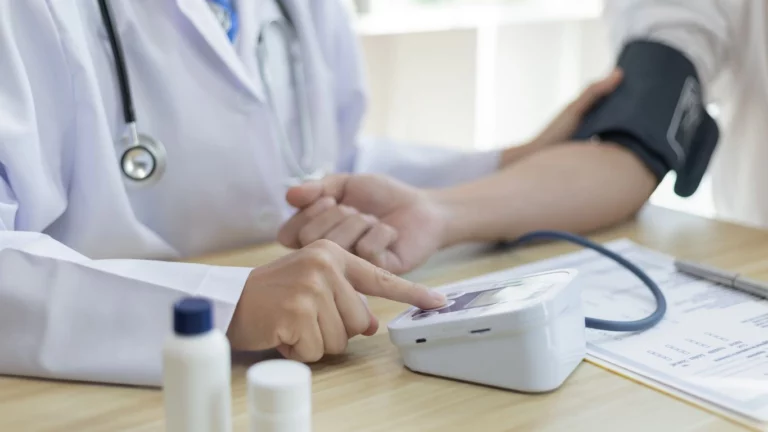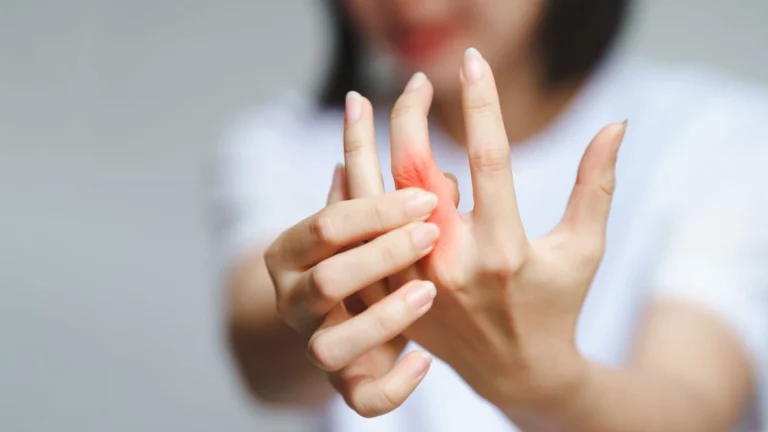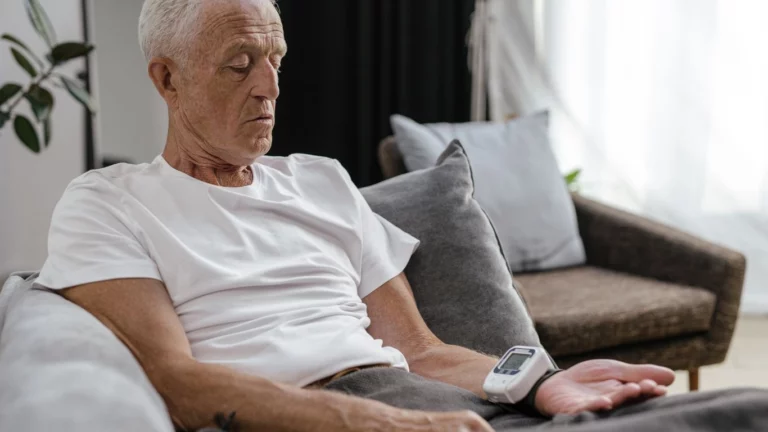Nighttime GERD Symptoms and Solutions: How to Get Some Rest 🌙🍽️
If you’ve ever found yourself tossing and turning at night, cursing that burning sensation in your chest, then you probably already know the struggle of nighttime GERD. It’s not just annoying—it can seriously mess with your sleep and make you feel like you’re fighting a battle you can’t win. But don’t worry, I’ve got you covered. Let’s break it down and talk about what’s going on, why it gets worse at night, and what you can do to get some much-needed relief.
What is GERD Anyway? 🤔

Alright, so let’s start with the basics. GERD (Gastroesophageal reflux disease) happens when acid from your stomach sneaks back up into your esophagus, causing that oh-so-fun burning sensation (yep, heartburn) and all sorts of other uncomfortable symptoms. If you’re dealing with GERD, it’s like your stomach’s acid decides to throw a party in the wrong place. Fun times, right?
But here’s the kicker: at night, your body’s natural defenses (like gravity) aren’t around to help keep the acid where it belongs. So, symptoms often get worse when you’re trying to sleep.
Why Does GERD Get Worse at Night? 🛏️

I don’t know about you, but when I’m lying down, everything feels worse. So, when GERD comes into the picture, it’s no surprise that your symptoms start flaring up more when you’re in bed.
1. Lying Down = Acid Party: Gravity’s not on your side at night. When you’re lying down, stomach acid is free to travel up your esophagus. It’s like your stomach is saying, “Hey, I’m going to throw this acid right at your throat while you’re trying to sleep!” (Not cool.)
2. Less Saliva, More Problems: Your body doesn’t produce as much saliva at night. And guess what? Saliva is like nature’s antacid. So when you have less of it, there’s less to neutralize that pesky acid.
3. Slower Digestion = More Time for Acid to Escape: At night, your digestive system doesn’t work as quickly. This means food stays in your stomach longer, giving the acid more time to creep up and cause trouble.
Common Nighttime GERD Symptoms 🌙

If you’ve got GERD, you probably know the drill when it comes to symptoms. But here’s a quick reminder of what to look out for when the sun goes down:
- Heartburn 🔥: The classic. That awful burning sensation in your chest that makes you wonder if your stomach is trying to cook you from the inside out.
- Regurgitation 🤮: Yeah, not fun. This happens when acid and food flow back up into your throat, sometimes even reaching your mouth. Gross, I know.
- Coughing or Wheezing 🌬️: It’s not just a chest burn; sometimes acid reflux messes with your airways, leaving you coughing or wheezing, especially in the middle of the night.
- Sore Throat or Hoarseness 😖: Waking up with a dry, sore throat? That could be the acid irritating your throat while you were sleeping.
- Chest Pain 💔: It’s easy to freak out and think it’s a heart issue, but it could actually just be your GERD acting up. Definitely get checked out if it feels serious, but chest pain from acid reflux is not uncommon.
So, How Do You Deal with Nighttime GERD? 💡

I’ve been there—waking up in the middle of the night, clutching my chest, wondering why on earth I ate that last snack before bed. But after some trial and error, I’ve figured out a few things that can help with nighttime GERD.
- Elevate Your Bed 🛏️: This one’s a game-changer. Raise the head of your bed by 6 to 8 inches to help gravity keep stomach acid where it belongs. No more acid rising up to ruin your night.
- Don’t Eat Right Before Bed 🍔: It’s tempting, I know, but eating too close to bedtime can trigger GERD. Try to give your stomach at least 3 hours to digest before you lay down.
- Watch What You Eat at Night 🥗: Some foods just aren’t GERD-friendly. Spicy food, caffeine, alcohol, and even chocolate can make things worse. If you want a peaceful night’s sleep, it might be time to skip that late-night pizza.
- Sleep on Your Left Side 😴: Weird, but it works. Sleeping on your left side can help reduce acid reflux. It’s all about positioning your stomach lower than your esophagus.
- Pop Some Antacids (If Needed) 💊: If lifestyle changes don’t cut it, talk to your doctor about antacids or medications like PPIs (proton pump inhibitors). These can help reduce the amount of acid your stomach produces, but always check with a healthcare provider first.
Troubleshooting Common GERD Issues 🛠️
Okay, so what if you’ve tried all the usual tricks and you’re still struggling with GERD? Here’s how to troubleshoot:
- Medications Not Working 💊: If the antacids or medications aren’t doing the trick, you might need a stronger prescription or a change in meds. Talk to your doctor—they might have a new plan for you.
- Elevating the Bed Doesn’t Help 🛏️: If raising the head of your bed isn’t enough, try combining it with other solutions, like cutting out certain foods or switching up your sleep position.
- Regurgitation While Sleeping 🤮: If that acid keeps sneaking back up, you might need to re-evaluate your diet or medications. Again, don’t hesitate to reach out to your doctor for advice on tweaking your routine.
Real-Life Success Stories 📈
Here’s the thing: managing GERD is totally doable once you figure out what works for you. Check out how some folks tackled their nighttime GERD issues:
- Sarah’s Story: Sarah was stuck in a loop of restless nights and constant heartburn. After elevating her bed and cutting out late-night snacks, she started seeing major improvements. She even said that now, she wakes up feeling refreshed instead of dealing with a sore throat.
- John’s Journey: John didn’t have much luck with lifestyle changes alone. But after talking to his doctor and starting a PPI (proton pump inhibitor), his nighttime GERD symptoms disappeared. He’s now sleeping like a baby and says it was totally worth the effort.
Key Takeaways / Summary 📝
- Nighttime GERD is a pain, but it’s manageable with the right strategies.
- Symptoms include heartburn, regurgitation, chest pain, and more.
- Solutions like elevating your bed, adjusting your diet, and taking meds (if needed) can help.
- Troubleshooting is all about trial and error—don’t give up!
FAQs 🤔
- Q: Can I prevent GERD at night?
A: Prevention is tough, but you can manage it. Elevating your bed, avoiding trigger foods, and sleeping on your left side can make a big difference. - Q: What foods should I avoid before bed?
A: Spicy foods, chocolate, caffeine, and alcohol are big offenders. Try to keep your evening meals light and GERD-friendly. - Q: Are medications safe for long-term use?
A: Some medications are fine for long-term use, but always check in with your doctor to make sure you’re on the right track.
References 📚
Disclaimer 🚨
Just a heads-up: this blog is for informational purposes only and isn’t a substitute for professional medical advice. Always consult with your healthcare provider for personalized guidance.
Call to Action 🗣️
Don’t let nighttime GERD ruin your sleep (or your whole day). Give these solutions a try and talk to your doctor about finding the best treatment plan for you. Your nights can be peaceful again—you just have to take the first step!

Camellia Wulansari is a dedicated health writer specializing in digestive disorders, contributing valuable insights and information to the health and wellness community. With a passion for promoting well-being through knowledge, Camellia serves as a reliable source of expert content on healthusias.com.






